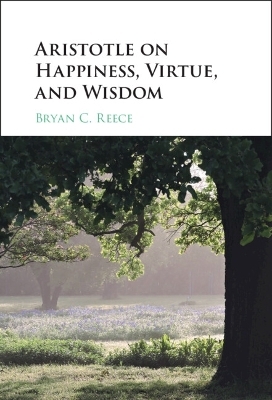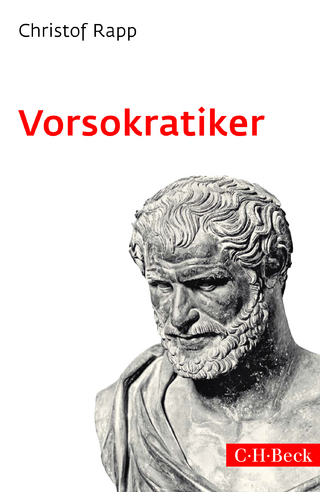
Aristotle on Happiness, Virtue, and Wisdom
Seiten
2023
Cambridge University Press (Verlag)
978-1-108-48673-6 (ISBN)
Cambridge University Press (Verlag)
978-1-108-48673-6 (ISBN)
This book seeks to understand Aristotle's influential answers to the questions: What is happiness? What is the relationship between intellectual and practical activity? How do wise people behave? It offers a fundamentally new approach to determining what kind of activity Aristotle thinks happiness is.
Aristotle thinks that happiness is an activity – it consists in doing something – rather than a feeling. It is the best activity of which humans are capable and is spread out over the course of a life. But what kind of activity is it? Some of his remarks indicate that it is a single best kind of activity, intellectual contemplation. Other evidence suggests that it is an overarching activity that has various virtuous activities, ethical and intellectual, as parts. Numerous interpreters have sharply disagreed about Aristotle's answers to such questions. In this book, Bryan Reece offers a fundamentally new approach to determining what kind of activity Aristotle thinks happiness is, one that challenges widespread assumptions that have until now prevented a dialectically satisfactory interpretation. His approach displays the boldness and systematicity of Aristotle's practical philosophy.
Aristotle thinks that happiness is an activity – it consists in doing something – rather than a feeling. It is the best activity of which humans are capable and is spread out over the course of a life. But what kind of activity is it? Some of his remarks indicate that it is a single best kind of activity, intellectual contemplation. Other evidence suggests that it is an overarching activity that has various virtuous activities, ethical and intellectual, as parts. Numerous interpreters have sharply disagreed about Aristotle's answers to such questions. In this book, Bryan Reece offers a fundamentally new approach to determining what kind of activity Aristotle thinks happiness is, one that challenges widespread assumptions that have until now prevented a dialectically satisfactory interpretation. His approach displays the boldness and systematicity of Aristotle's practical philosophy.
Bryan C. Reece is Assistant Professor of Philosophy at the University of Arkansas. He has published various articles on ancient Greek ethics, metaphysics, and philosophy of action.
1. From the Dilemmatic Problem to the Conjunctive Problem of Happiness; 2. Theoretical and Practical Wisdom; 3. Are There Two Kinds of Happiness?; 4. Is Contemplation Proper to Humans?; 5. Solving the Conjunctive Problem of Happiness.
| Erscheinungsdatum | 03.10.2022 |
|---|---|
| Zusatzinfo | Worked examples or Exercises |
| Verlagsort | Cambridge |
| Sprache | englisch |
| Maße | 158 x 235 mm |
| Gewicht | 400 g |
| Themenwelt | Geisteswissenschaften ► Philosophie ► Philosophie Altertum / Antike |
| ISBN-10 | 1-108-48673-8 / 1108486738 |
| ISBN-13 | 978-1-108-48673-6 / 9781108486736 |
| Zustand | Neuware |
| Informationen gemäß Produktsicherheitsverordnung (GPSR) | |
| Haben Sie eine Frage zum Produkt? |
Mehr entdecken
aus dem Bereich
aus dem Bereich
mit Sokrates, Seneca, Platon & Co. im Gespräch
Buch | Hardcover (2023)
FinanzBuch Verlag
18,00 €


